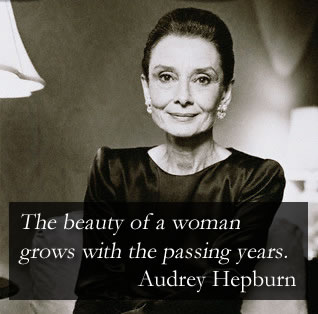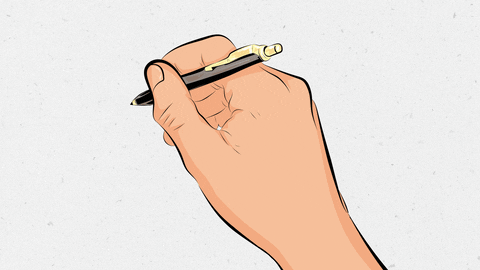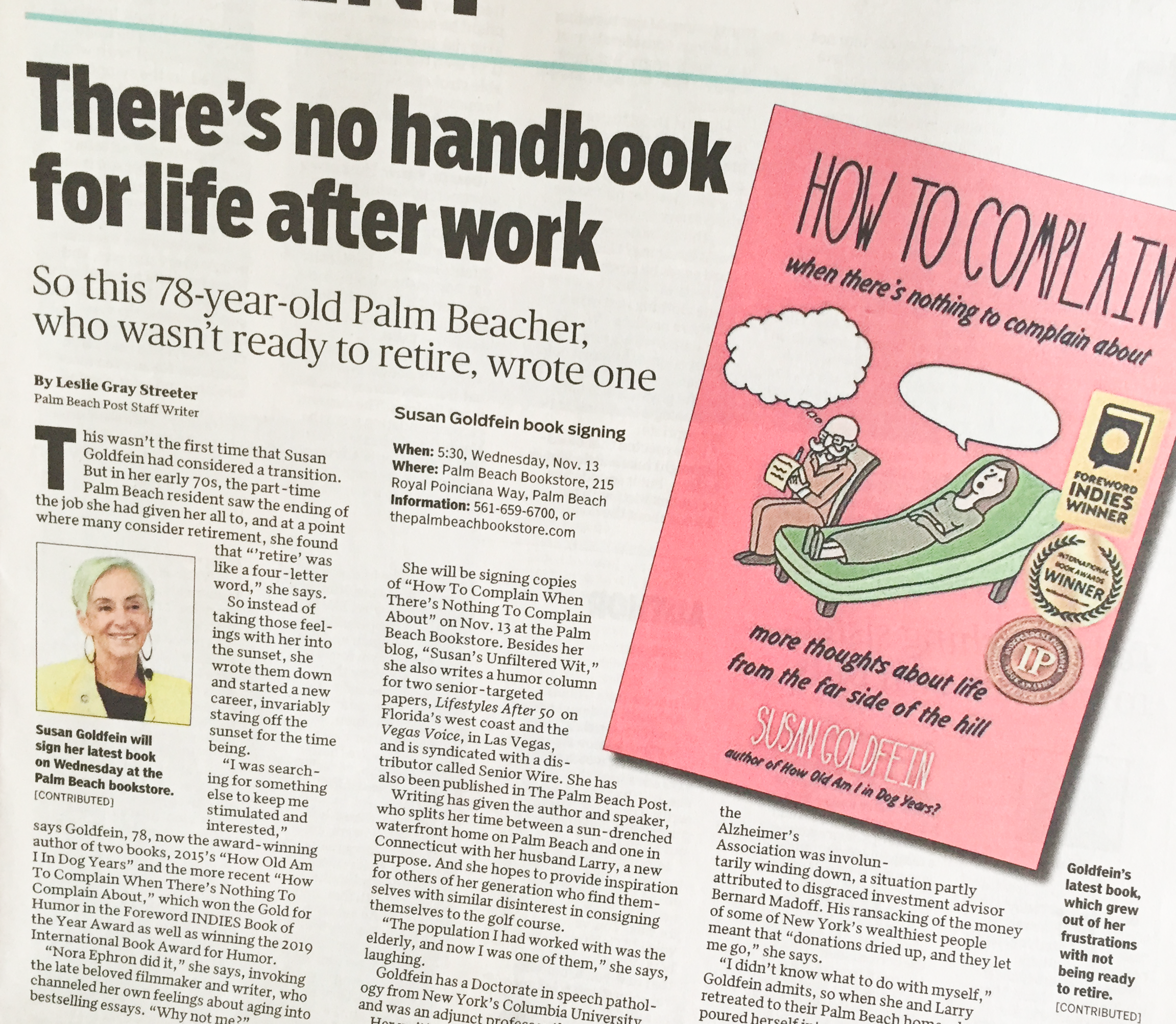The other night, in a restaurant, my husband happened to encounter a woman he knew from high school days. This is not unusual. My husband frequently runs into people from his youth. In fact, I once wrote about this phenomenon, which never fails to amaze me. (See “State of the Reunion,” March 2, 2015.) Growing up in a small town, his high school class had about 150 students, while mine, big city girl that I was, had about 1,000. Yet I run into no one.
But I digress. He introduced me to his former classmate, a very attractive woman who had to be my husband’s age. Even if she was one of the smart kids and skipped a few grades, she could only be a couple of years younger. So we chatted politely, (they chatted; I just smiled pleasantly and tried to look interested) then went our separate ways.
When we were seated at our table, my husband turned to me and said “She used to be very pretty.”
What? Were we looking at the same woman? Had something gone awry with his new lens implants? The attractive woman I just met was very pretty. Right here, right now, in this very restaurant.
Of course, my husband was remembering a 16-year-old version of Dolores, whose name I changed to protect the VIC (Victim of Insulting Comment). The Dolores he recalled did not have laugh lines around her eyes, creases around the mouth, nor age spots on the hand he shook.
 Come on. People get older. It’s what they do. So why judge a woman’s appearance by some outdated standard that clearly no longer applies? No 70-something-year-old female is going to look like a fresh-faced cheerleader. Nor should they be expected to. And speaking for myself, I don’t want to.
Come on. People get older. It’s what they do. So why judge a woman’s appearance by some outdated standard that clearly no longer applies? No 70-something-year-old female is going to look like a fresh-faced cheerleader. Nor should they be expected to. And speaking for myself, I don’t want to.
How often have I heard this “used to be” phrase applied, usually by a man, to an older actress who, in her younger days, was considered “hot.” But if she has dared not to have boob lifts, botox, or skin resurfacing (ouch!) she is cast aside. Why are they still idolizing the pin-up version, but failing to apply a different aesthetic today?
I know I’m joining the voices of all those who decry our youth-worshipping culture, but I find that frame of reference really irritating, both intellectually and emotionally. And I swear that my ire has absolutely nothing to do with the fact that I just had another birthday.
And speaking of birthdays, on which birthday does a woman stop looking pretty, or hot, or beautiful, and start looking “good for her age?”
Looking good for one’s age. There’s another expression that deserves some scrutiny. What exactly does it mean to “look good for one’s age?”
Against what standard is the recipient of this compliment being judged? And, by the way, to say one looks good for one’s age is hardly a compliment. Telling someone they look good should not require a qualifier.
If I am 75 and look good for my age, does that mean other 75-year-olds do not look good? Does that mean that my cohorts are largely unattractive?
And today, what does 75 look like anyway? Certainly not like my daughter, but I believe somewhat better than my grandmother?
“Age-defying” and “anti-aging,” — two more phrases that deserve the “delete” key. If you take a moment to examine them, what are they really saying?
Short of dying, it’s not possible for a human being to defy age. Nor should we be asked to. And to be “anti-aging” is just not realistic, nor politically correct. Some of the best people I know are aging.
There is beauty at 20 and there is beauty at 70, and we cannot expect them to be the same. As we age, gray hair, a few wrinkles, and some extra pounds should not be regarded as a disqualifier for seeing someone as very attractive.
In fact, when I look at photos of myself in high school, while I do see smoother skin and darker hair, I also see an insecure young woman who was struggling to find an identity. The person looking back at me in more recent photos is definitely older, but she is also someone with confidence, style, and a strong sense of who she is.
Society is harder on women than on men when it comes to aging. And we have more to overcome to feel good about ourselves. Yes, it’s true. Life changes our appearance. But “pretty” should not have an expiration date.
(OK, Sam, I feel better now. Let’s go for a walk.)









Okay people, let’s hear it for the older, yet pretty woman!
Three cheers!!!!
I am definitely sharing this! Thanks!!
Yes, spread the word!
Excellent blog, Susan!
Thanks Ruthie. Inspired by another birthday.
You’ve hit the nail on the head. I wonder how your husband, or any other man, would react to the same comment about him? That said, I wouldn’t want to go back to my high school days either. I much prefer the old and fat version of me. Ok, maybe not the fat part, or come to think of it, the old part either.
Maybe somewhere between high school and now?
35ish would be my choice.. The kids were past diapers and nap time, I could read the phone book without glasses, and still had a waistline. How about you?
Maybe early 40s for all the same reasons.
You seemed to have hit a sore spot with a lot of your audience. Good going!
Yeah – and we’re not gonna’ take it anymore!!!!
Thanks for this! Very timely.